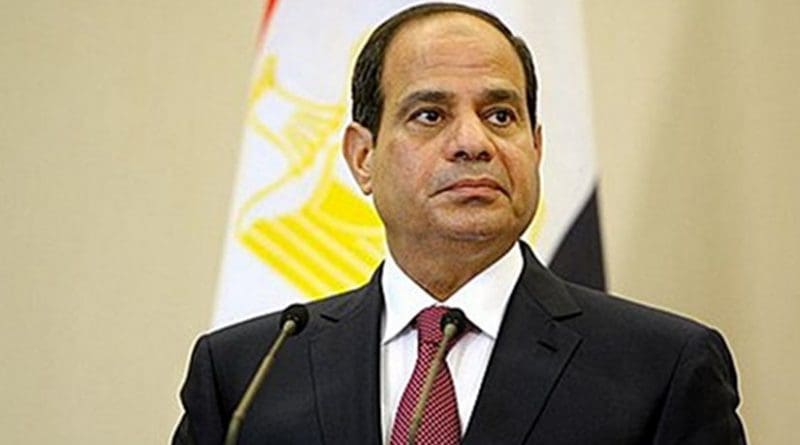The ‘Second Suez Canal’ Battle – OpEd
By Arab News
By Abdulrahman Al-Rashed
The Muslim Brotherhood considers itself at war with the Egyptian regime. This week, they launched a huge campaign that accompanied the inauguration ceremony of the “second Suez Canal.” Their sarcastic comments underestimated the new canal and were mentioned in many news pieces and social media posts on Twitter and Facebook.
We know that the opposition is in conflict with the government of Abdel Fattah Al-Sisi, but we did not realize how far the gap is between the two. The Brotherhood could not stand there being a new Suez Canal without their involvement, which is why the group launched a relentless campaign in Arab and foreign media, stating that this is not a canal, but rather merely a fruitless “branch” that was not worth the investment. It also claimed that President Sisi was not behind this achievement, and that the whole project was the idea of the ousted President Muhammad Mursi.
In the end, the canal was dug and Egyptians enjoyed the lavish ceremony that followed. For the first time in the history of the canal, there will be a faster two-way traffic. The project was done in record time: Less than a year from planning to execution.
We knew the Muslim Brotherhood to be the most experienced opposition party and group. They are known for their ability to manage their battles by promoting their ideas and distorting their opponents’ image. However, this time, they seem to have chosen a battle doomed to fail.
They usually choose widely important subjects such as financing flour and bread, the problems of public transport, power outages, unemployment, etc. In brief, they usually choose negative issues that can rally people around the group.
Nevertheless, there is no reason to complain about the new Suez Canal as it represents a different challenge. I believe that the majority of Egyptians consider it as a national project, not belonging to the president or his government, or even the political opposition! The unbiased citizen sees the new canal as more than a waterway; they are proud and optimistic about it. Due to the MB’s sarcasm and antagonist campaign, millions of Egyptians rallied around the government in the face of the Brotherhood.
Paradoxically, the canal during Mursi’s era reflected ambiguity, chaos and fear. People were afraid that ships might come under fire, this is why, many of them were forced to go through southern Africa, around the Cape of Good Hope; thus, insurance companies raised their prices.
Today, the canal reflects the political situation in Egypt. People are tired of political instability and conflicts. They want to see tangible results and not just promises from the government. The new canal has become a political symbol, not to mention that it will double the revenues of the country.
Amid the opposition’s antics, terrorism and domestic and regional circumstances, the Egyptian government could claim that it is not strong and that it needs to put MB leaders in prison to counter terrorist attacks in Sinai. But it has guaranteed the fact that it dug a new canal with the support of allies who chose to invest in the project.
Every leader wants to leave a strong mark during his term of office and President Sisi made an intelligent move when choosing this project. The Suez Canal does not serve as a political project which aims to raise spirits and enhance the government’s image. The new Suez Canal is a tangible project, critical for international routing and has economic perks. It is also essential for the promotion of Egypt’s role regionally and internationally.
Egypt needs to move on to a new word. Indeed, the last major Egyptian scheme during the past ten years was the “Toshka lake” project for agriculture that dried before even seeing the light, in addition to several planned touristic cities. Those who are developing plans for the canal are not only aiming to increase the number of ships crossing it, but their objective is also to transform its zone into a huge industrial worksite for ships that also offer important navigation services for both the Mediterranean sea and the Red sea.
The Suez Canal has always been the object of battles, but Egypt was always against the enemy. Trying to turn the Suez Canal into a lost Egyptian battle will make the Brotherhood worthless, if they still have any worth left, because it is a national project.
For the world, the canal is also a strategic waterway with an international importance that has increased since corridors and crossings now make dangerous political tools. It is also vital for the crossing of tankers, cargo vessels and warships since it saves as many as ten days at sea by using it instead of sailing around South Africa. The Suez Canal also represents the cohesion and resilience of the new Egyptian state, a year after Sisi came to power and made a promise to build the second Suez Canal.
Now, the “battle of the second Suez Canal” has ended with the conclusion of festivities and the navigation of ships in front of the people of Suez.

